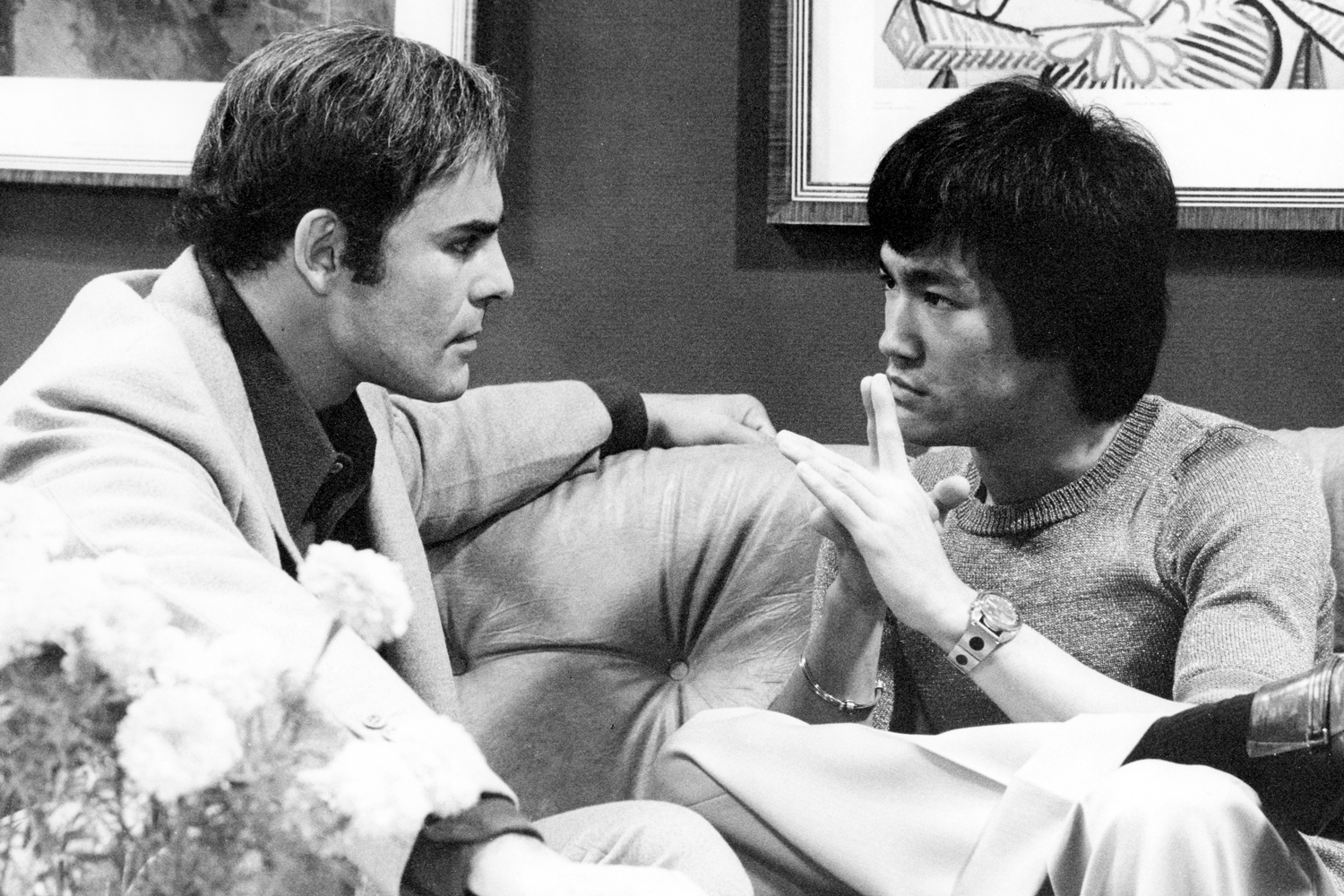“The oneness of all life is a truth that can be fully realized only when false notions of a separate self, whose destiny can be considered apart from the whole, are forever annihilated.”
Read MoreBruce Lee had a giant library and read voraciously. He would annotate his books, and it’s evident that these books helped influence his philosophies and approach to living life. We think it’s important to share these books because they help illuminate the process of Bruce Lee becoming himself and how he used the insights gained from his reading and molded them to fit himself.
Read MoreThis episode features a letter that Bruce Lee wrote to his good family friend Pearl Tso when he was 21. Pearl was around Bruce’s age, and her mother was Bruce’s favorite auntie who was a mentor and good friend to him. Bruce wrote this letter after he had left Hong Kong and had been living in the United States for around three years.
Read More“Be water, my friend.” This is one of Bruce Lee’s most famous quotes, but how did the idea first come to Bruce? In this episode we share and discuss an essay that Bruce wrote around his epiphany on the nature of water.
Read MoreThis week we have one of our favorite guests back on the show, Shannon’s mom, Linda Lee Cadwell!
Linda joins Shannon and Sharon to talk about the making of Enter the Dragon.
Read More“Thinking is rehearsing in fantasy for the role you have to play to society. And when it comes to the moment of performance, and you’re not sure whether your performance will be well received, then you get stage fright.”
Read More“The ego boundary is the differentiation between the self and the other. It is not a fixed thing. If it is fixed, then is becomes a character or an armor like the shell of a turtle.”
Read MoreIn a special gathering to commemorate the 45th anniversary of Bruce Lee’s passing, Emmy Award-winning comedian and author W. Kamau Bell, Bruce Lee biographer and cultural critic Jeff Chang, Bruce Lee’s daughter Shannon Lee, along with moderator and cultural anthropologist Sharon Ann Lee held a discussion on Bruce Lee’s long-lasting legacy and how he became an unexpected icon for Afro-Asian unity.
This conversation took place at the Library Foundation's ALOUD series on July 17, 2018 at the Los Angeles Public Library.
Read MoreWhat would Bruce Lee Do? This is a question that many of our podcast listeners have wondered. In this special episode of the podcast, Shannon and Sharon answer listener questions based on their personal opinions, life experiences, and their knowledge of Bruce Lee, his life and his philosophy.
Read MoreHow did Bruce Lee become a philosopher? This week Shannon and Sharon dive into Bruce’s essay on why he got interested in philosophy and what he hoped to do with it.
Read MoreThis topic comes from an essay that Bruce Lee wrote about how to choose a martial arts instructor, but the advice can be applied in general to mentors, teachers, or guides.
Read MoreThese three faults are the mistakes and obstacles that we make in our search for expanded consciousness.
1. The invention of an empirical self that observes itself
2. Viewing one’s thoughts as a kind of object or possession, situating it in a separate, isolated part of itself – I “have” a mind
3. The striving to wipe the mirror
Read MoreAs we have mentioned before, Bruce Lee was an avid reader and pursuer of knowledge. Bruce had a passionate intensity around his desire to learn. He had an extensive library and would annotate many of his books. This week we share another book from the Bruce Lee Library, Commentaries on Living 1st Series by Jiddu Krishnamurti.
Read More“Gung fu is so extraordinary because it is nothing at all special, it is simply the direct expression of one’s feeling with the minimum of lines and energy. Every movement is being so of itself without the artificiality with which we tend to complicate them. The closer to the true way, the less wastage of expression there is.”
Read More“The true gung fu master aims his blows at himself, and when successful, he may even succeed in knocking himself out. The primary function of one’s tools is really revealed when they are self-directed and used to destroy greed, fear, anger and folly. Manipulative skill is not the goal. After years of training, one hopes to achieve a vital loosening and equability of all powers.”
Read More“In the long history of martial art, the instinct to follow and imitate seems to be inherent in most martial artists – instructors and students alike. This is due partly to being human and partly due to patterns of styles. Ever since the establishment of institutes, academies, schools and their instructors, the need for a “pointer of the Way” is echoed.”
Read More“The void may be said to have two aspects:
It simply is what it is.
It is realized; it is aware of itself. And to speak improperly, this awareness is “in us,” or better, we are “in it.””
Read MoreThis episode is a follow up to episode #87 Becoming a Warrior.
“The successful warrior is the average man with laser-like focus.”
Read MoreThis week we have a special episode where Shannon and Sharon share wisdom from Bruce Lee Podcast listeners. We asked for our listeners to share their #BruceLeeMoments and we’ve gotten emails from around the world!
Read More“An intelligent mind is an inquiring mind. It is not satisfied with explanations, with conclusions; nor is it a mind that believes, because belief is again another form of conclusion.
An intelligent mind is one which is constantly learning, never concluding – styles and patterns have come to conclusion, therefore they have ceased to be intelligent.”
Read More




















